It’s a regular day for all of us, but for Kruti Beesam – It’s a super-duper day! Kruti Beesam or the “Ramp Fighter” is popularly known in Hyderabad and celebrates every day as a priceless gift.
Where does Kruti Beesam get this attitude from?
She gets the attitude probably from those life-altering seconds when her mother’s umbilical cord was gagging her, and her brain was losing oxygen, and yet she fought to stay alive. Or from being unaware of that phase when she was not keeping pace with her twin sister, passing all those growth milestones with ease. Or because she is blessed with the most loving family on earth; probably because the Universe left her brain untouched and kissed only her muscles in a minuscule way, despite being diagnosed with cerebral palsy at 2. Or because she has come to accept that her life with orthopedic disabilities is normal, given that every average person is disabled in some way.
You can see all of this coming through when you talk to her. What she shares is not her angst but a pragmatic effort to be the voice for those who like her. She prefers to motivate people like her to accept their condition, go out, and seek what they need. She’d prefer to shift focus from her disability and focus on creating opportunities for better understanding and accommodation from this society – After all, it’s her world too.
Kruti shares with impeccable clarity, “I want to tell people with disabilities that they should go beyond their condition and should not let their disability define them. My personal experience has been that much of what we become is not shaped by how people treat us but by how we respond. You can choose to react in whatever way you want. It also depends on your self-image.”
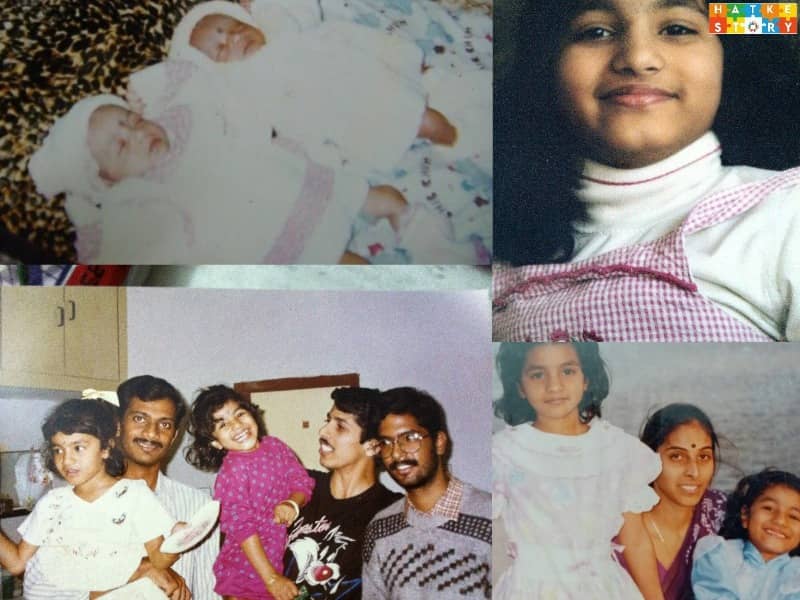
For starters, Kruti went to a regular school and joined kindergarten when she was 8 – Because her parents were clear that she will go only to a regular school and build stable relationships with regular children. While the disability posed obvious obstacles, her parents ensured that the years of physiotherapy paid off in enabling smoother assimilation into regular schooling.
Kruti captures her expectations with, “If you explore and if you want to do something, you’ll find a way. If you want to go out, don’t keep thinking, ‘Can I step out?’ Just do it. You may face a bit of bitterness here and there, but that should not restrict you from doing what you want. You must go beyond all those minor disappointments and do what you planned to do. Family acceptance is the most critical first step. It shapes your self-image and your attitude.
As for me, my parents accepted my condition, and they decided to work around it. I love myself the way I am, and it is reflected in all the people I meet. Sometimes there are exceptions in my healthy world too. But, even to such people, familiarity breeds acceptance. It just starts happening at some point. Everyone, by nature, is very kind and helpful, and they want to help. You only have to ask.”
She does have a point when you realize that her schooling was comfortable and supportive, which added to her confidence and self-esteem. Her school built ramps to accommodate her and provided scribes for her board exams. Even her classmates went out of the way to make her schooling normal in their thoughtful ways.
But, she also discovered a parallel world where people can be wily and indiscrete – It was during her application at the best college in Hyderabad for her UG. Though she did well academically, the college could not accommodate her because she needed access to the lift to reach her classroom. Apparently, in that college, lifts were marked only for professors. Kruti failed to understand the big deal if a student who used a wheelchair wanted to use the lift. The said educational institute had a lot of learning to catch up with. It was not even about inclusivity; it was about discovering your humanity.
Kruti’s family members were shocked, and they decided that it’s time she fought for the rights of the disabled. The press lapped up her angst and genuine demand for ramps. The goal was to make all public spaces accessible, even to those who had disabilities. The focus was on gaining acceptance of their condition. Her call, ‘Do not cripple us more with mobility limitations,’ hit a chord with most of the population. This strong call got her featured across local media and television in Telangana.
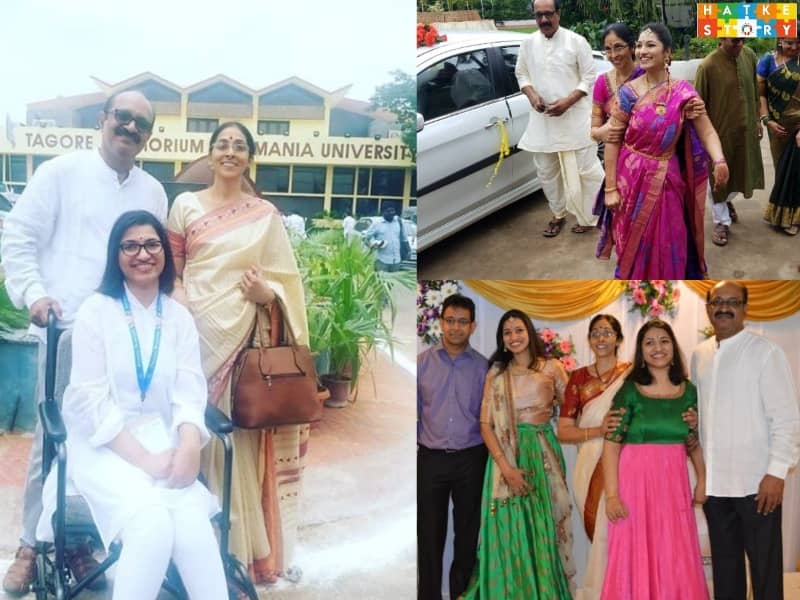
Kruti completed her UG in Psychology (which she feels does enable her to understand people better) and then a PG in Sociology. In 2013 she started blogging her thoughts, her highs, and lows at www.beesamtwins.blogspot.com. She shares with glee that she is a big fan of Shah Rukh Khan. Dilwale Dulhania Le Jaayenge remains her all-time favorite – not just for the music and screenplay, but for how the movie makes it all about family and loving relationships.
Kruti does have her bad days too. She says, “While at college, the only thing that bothered me was writing exams with scribes who weren’t up to the mark.
Generally, I used to be allocated a center that was not my regular college. Understandably, this allocated center is not used to working with a disabled person. So, weeks before the exam, my parents used to start communicating with the head of that college, let them know my condition, and they used to request a scribe. The center had to arrange a separate room for me – Since I have to dictate my answers to the scribe, I cannot sit in the same examination hall as the others.
That meant that the school/college/center must assign an invigilator just for me. While this seems like additional work for them, they never get why I need a good scribe. They think, ‘why bother looking out for a good scribe when such kids will never pass the exams.’ So I used to get scribes who had poor handwriting, wrote wrong spellings, and could not keep pace with my dictation.
One invigilator even asked my mom what the fuss was all about when students like me were anyway never going to cut through the examination process. It hit me hard, and I wanted to show him that I was academically well accomplished. But I just learned to accept these one or two aberrations of my life.”
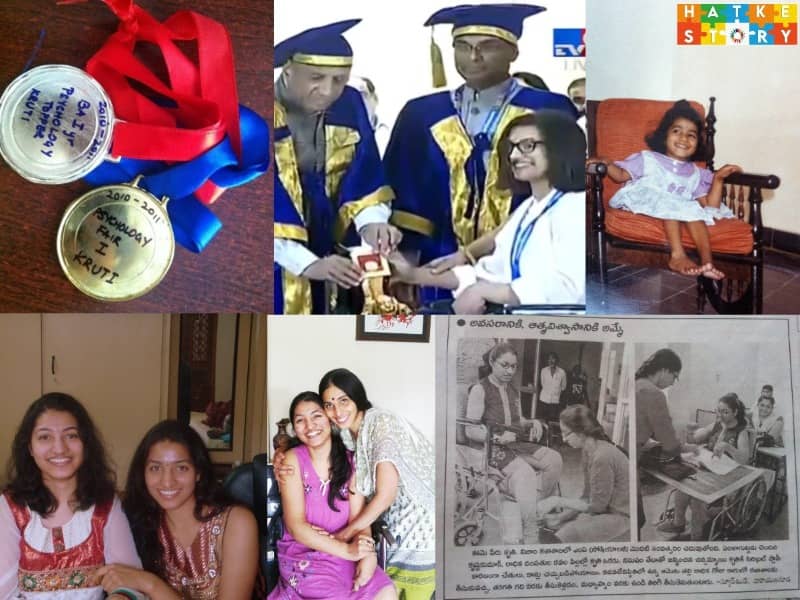
Kruti completed her UG in Psychology (which she feels does enable her to understand people better) and then a PG in Sociology. In 2013 she started blogging her thoughts, her highs, and lows at www.beesamtwins.blogspot.com. She shares with glee that she is a big fan of Shah Rukh Khan. Dilwale Dulhania Le Jaayenge remains her all-time favorite – not just for the music and screenplay, but for how the movie makes it all about family and loving relationships.
Kruti does have her bad days too. She says, “While at college, the only thing that bothered me was writing exams with scribes who weren’t up to the mark.
Generally, I used to be allocated a center that was not my regular college. Understandably, this allocated center is not used to working with a disabled person. So, weeks before the exam, my parents used to start communicating with the head of that college, let them know my condition, and they used to request a scribe. The center had to arrange a separate room for me – Since I have to dictate my answers to the scribe, I cannot sit in the same examination hall as the others.
That meant that the school/college/center must assign an invigilator just for me. While this seems like additional work for them, they never get why I need a good scribe. They think, ‘why bother looking out for a good scribe when such kids will never pass the exams.’ So I used to get scribes who had poor handwriting, wrote wrong spellings, and could not keep pace with my dictation.
One invigilator even asked my mom what the fuss was all about when students like me were anyway never going to cut through the examination process. It hit me hard, and I wanted to show him that I was academically well accomplished. But I just learned to accept these one or two aberrations of my life.”
Kruti pauses now and then, probably recalling the incident and the responses to her disability. “Now, I work for an MNC, as a proofreader. I work on their financial reports to make them language-perfect. While I’d be lying if I say that I am not missing my creative writing, I enjoy my time at my office. My colleagues are great, and everyone does their own thoughtful thing, and I almost forget I have a disability.
My mother accompanies me and stays with me all through. She helps me out during lunch and is there for my bio-breaks. My most incredible gratitude goes to my mother, and she’ll remain my biggest inspiration all my life. She is my pillar of strength — She has enabled me in ways that no other person like me can ever imagine.
My twin sister remains my eyes and ears to the world. While I attend parties and make temple visits with her, which were not possible, she documents everything with a video camera. She has even gone live during her trip to Tirumala by walk. She’s been doing this to me right from our early childhood. She is only 5 minutes older than me, and my Akka means the world to me.
I feel, among other things, two essential factors can normalize life for a disabled person:
- The role of your primary family and the way they make you feel about yourself. I was raised never to be ashamed of my scars (due to surgery.) My self-image is very much based on what my family has made me believe.
- Mainstream media – There are barely any movies where the lead role has some orthopedic disability. Visual disabilities are accepted, and those who lobby for them must be congratulated on their successes. They have won their social acceptance. They even have reservations and government support schemes in place. But a narrative about an orthopedically handicapped person in a romantic situation is still no.”
Yes, Kruti hits it hard – There must be an effort to normalize orthopedic disabilities.
When families and influencing media begin to accept, society will stop the stares and glares at a girl who believes she is normal.
Disability is a perception, and it is essential to break that barrier. Every super-duper day can be a small effort towards weakening that barrier.
Like us on FB, if you find our content interesting: https://www.facebook.com/hatkestoryofficial/
Do you have an interesting incident or experience to share with the world? Write to us, and together we can discuss how to weave your story and present it to the world. Would you mind sending us your story?

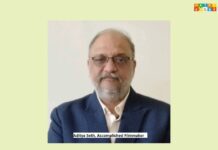



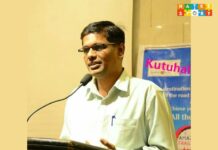
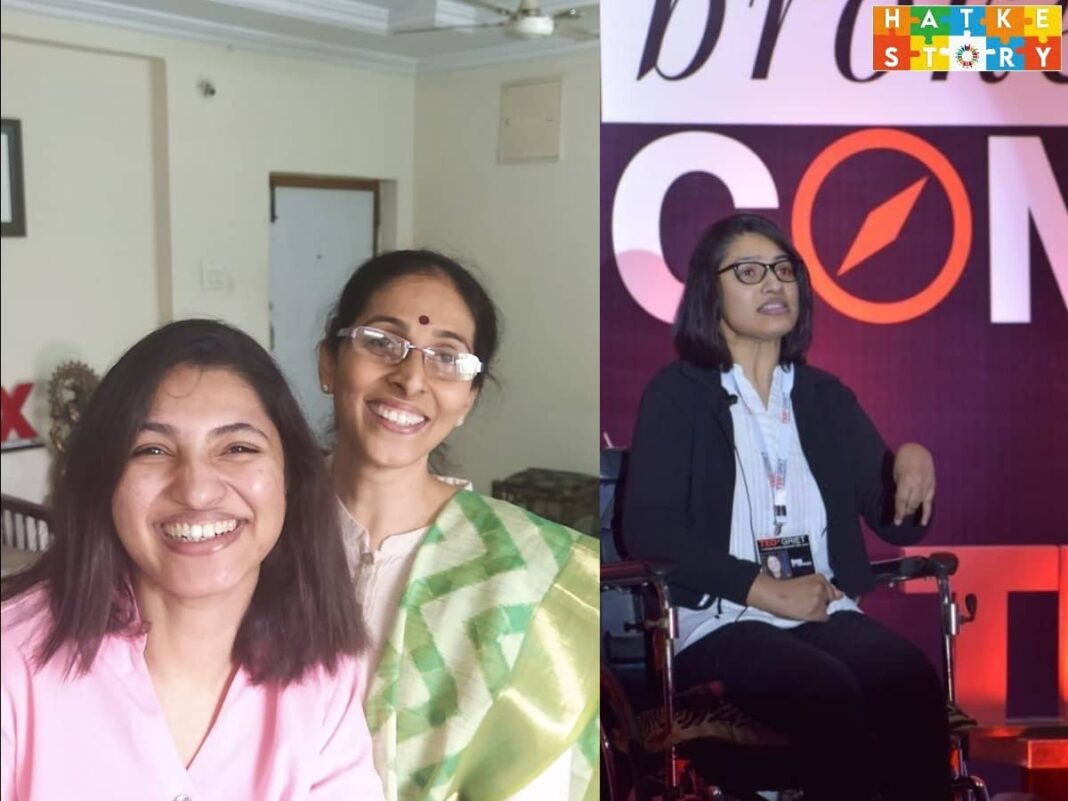
Comments are closed.